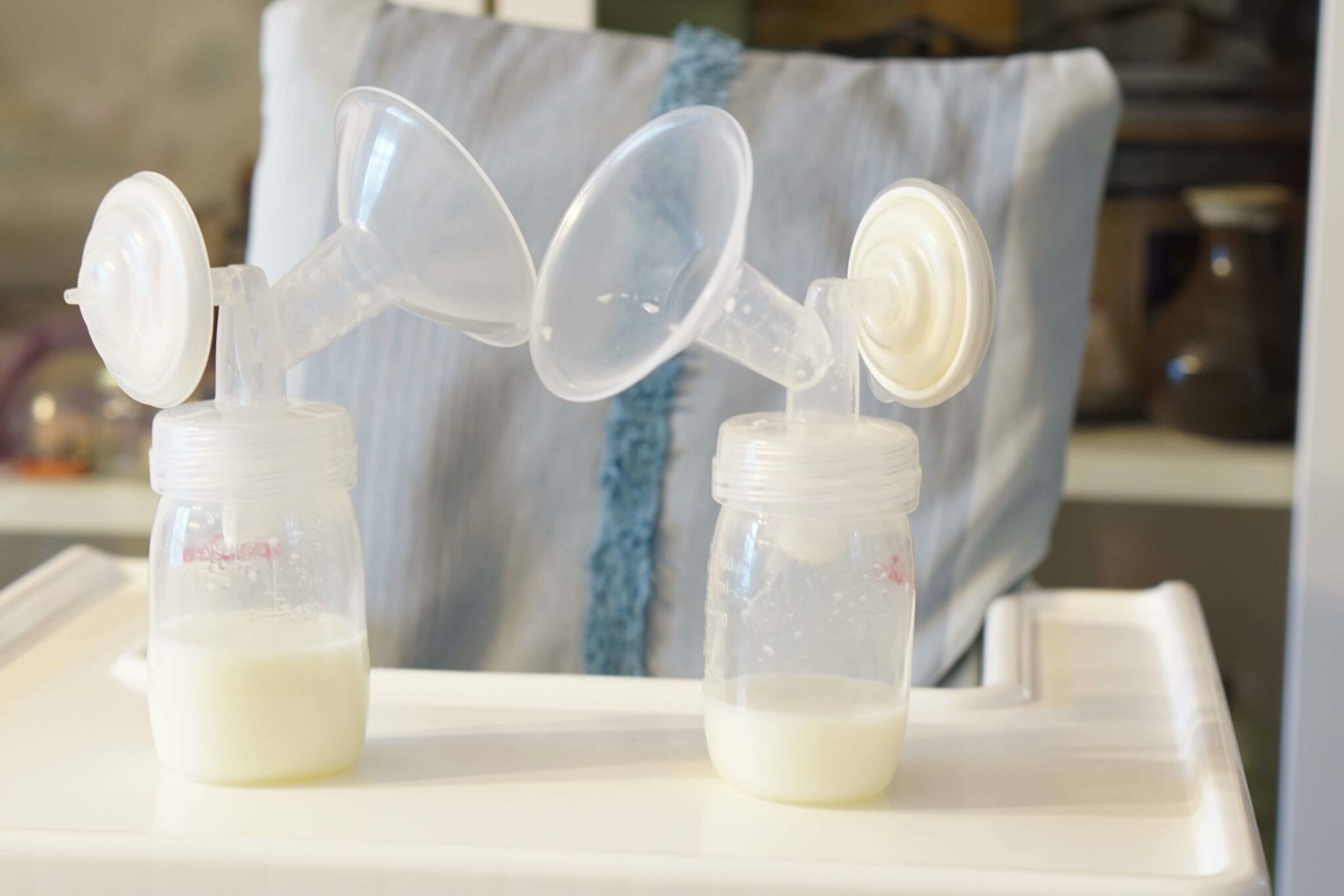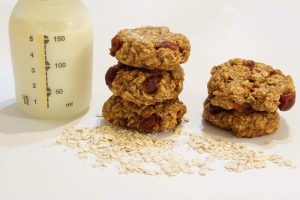Breastfeeding: Am I Producing Sufficient Milk?

One of the most common concerns raised by breastfeeding mothers is that they are not producing enough milk for their baby. In fact, provided the baby is gaining weight and producing plenty of wet and soiled nappies, it is highly probable that the mother’s milk supply is entirely adequate. However, there are factors that can result in a reduced milk supply and if this happens it is important to consider why and tackle the issue, so that successful breastfeeding can continue.
What Can Lead to Low Milk Production?
Milk production starts before the baby is even born, whilst the mother is still midway through her pregnancy. The hormones oestrogen, insulin, cortisol, progesterone and prolactin are all involved in controlling the stimulation and production of milk. Once the baby is born, prolactin and oxytocin are both involved in establishing milk supply, but the main factor that contributes to having a constant supply is consistent and regular emptying of the breasts. Ideally, via breastfeeding of the infant, but milk can also be removed using a breast pump.
There is no rule that states that all women will find breastfeeding easy, simple and enjoyable. Many women will find the process difficult, challenging and even painful, and often there is insufficient support in place to overcome these issues. If the baby is not feeding well, he or she is likely to become unsettled due to hunger, this can increase the mother’s stress, exacerbating the problem further. The other issue with inefficient feeding is that on-going milk production is affected because the breasts are not being regularly emptied. This reduces natural milk supply and thus, the cycle continues, often resulting in the mother switching to formula.
Mothers of premature or high-risk infants are at particular risk of experiencing issues with their milk supply. Mothers who give birth before 37 weeks gestation may experience a delay in their milk ‘coming in’. Normally, the early suckling of a feeding child will stimulate the release of oxytocin, which triggers milk ejection. These early feeds may not be possible with a premature infant, particularly if they require prompt medical attention. Furthermore, if the baby has to then spend a prolonged period of time in the NICU, the mother may be restricted to hand expressing and pumping, which can be exhausting, stressful and difficult to maintain. The importance of breast milk should not be underestimated for any child, but for a very premature baby it has additional qualities that make it even more valuable. It can promote brain and gastrointestinal development and reduce the risk of sepsis.
Medical factors can also contribute to a reduced maternal milk supply. These include:
- Postpartum haemorrhage
- Retained placental fragments
- Thyroid issues
- Previous breast surgery that affected the nerves or milk ducts.
Mothers who have been through a stressful labour, had to undergo a caesarean, or have a high BMI are also more likely to struggle to breastfeed. Obesity can inhibit the production of prolactin.
Resolving the causes of low milk production
Clearly, how you resolve the issue of having low milk supply depends on the reasons behind it. If there is a medical contraindication with either you or your baby, consult a specialist for help. Tongue tie affects between 4 and 11% of newborns and can hinder a baby’s ability to suckle. It happens when the frenulum, which attaches the tongue to the floor of the mouth, is shorter than normal. Not all cases will require treatment, but if the baby is struggling to feed, a cut can be made to the frenulum. This simple procedure can usually be performed under local anaesthetic and should help the baby to latch on and feed more efficiently.
Another option is to investigate the use of pharmacological or herbal galactogogues. There is limited scientific evidence that these can improve milk supply in the short-term. They have been investigated particularly with regards to helping mothers of premature infants, who may be struggling with prolonged periods of hand expressing and pumping.
If expressing milk is the only option, try using a hospital grade electric pump, as these are known to be more efficient at emptying the breasts. If possible increase the frequency of expressing and try to have more skin-to-skin contact with the baby as this will stimulate the breasts to produce more milk.
Finally, but most importantly of all, consult a specialist. Speak to your doctor or your midwife about local lactation consultants. A lactation specialist is best placed to identify your issues and find reasonable solutions.
Try Nabta’s family doctor to know if your baby is progressing well and if they are getting enough milk.
Nabta is reshaping women’s healthcare. We support women with their personal health journeys, from everyday wellbeing to the uniquely female experiences of fertility, pregnancy, and menopause.
Get in touch if you have any questions about this article or any aspect of women’s health. We’re here for you.
Sources:
- Asztalos, E V. “Supporting Mothers of Very Preterm Infants and Breast Milk Production: A Review of the Role of Galactogogues.” Nutrients, vol. 10, no. 5, 12 May 2018, doi:10.3390/nu10050600.
- “Delayed or Not Enough Milk Production.” Stanford Children’s Health, www.stanfordchildrens.org/en/topic/default?id=delayed-or-not-enough-milk-production-90-P02390.
- “Tongue-Tie.” NHS, 23 Feb. 2017, www.nhs.uk/conditions/tongue-tie/.










